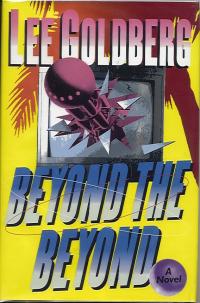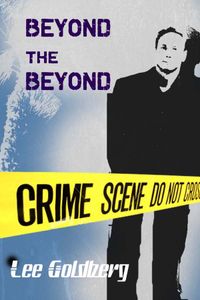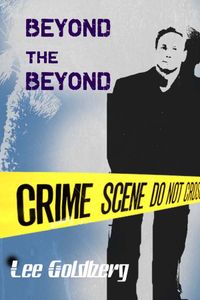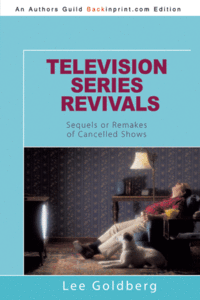 This article originally appeared in Mystery Scene Magazine back in 1997. I thought I'd repost it here to mark the publication of the Kindle edition.
This article originally appeared in Mystery Scene Magazine back in 1997. I thought I'd repost it here to mark the publication of the Kindle edition.
An awful lot of people in the television industry see shrinks. Those who don't, write novels.
Well, that's my theory, any way.
I figured it was either write a book, or go into psychoanalysis. Writing a book seemed like a better alternative, since you can actually make a few bucks while you sit and whine about how crazy the business is and what the craziness does to you.
I wrote my first novel, My Gun Has Bullets, while writing/producing a really terrible, syndicated action show. In that book, a good, decent cop named Charlie Willis is gunned down by a lunatic TV star on her way to a sale at Neiman-Marcus. To cover up the crime, the studio buys him off by making him the star of his own action series. But things go bad when someone loads his prop gun with real bullets and he kills his guest-star. I trashed everything and everyone that drove met nuts about the TV business…and there was a lot, having written and/or produced such series as Hunter, Baywatch, Spenser: For Hire, Cosby Mysteries and Diagnosis Murder, to name a few.
I felt a lot better after I wrote the book.
But I didn't get around to writing the sequel, Beyond the Beyond, until a couple years later, when I became a writer/producer on SeaQuest. Within weeks, I was getting email death threats from deranged fans, including one lady who was enraged weren't consulting her for advice or staying true to the "fanfic" (fan-written, self-published fiction). Another lady, calling herself an "Admiral in the United Earth Oceans," was convinced one of the characters in the show was in love with her.
Of course, it reminded me of what the actors and writers on Star Trek must go through (which I knew well, since many of my friends have worked on the show). And that reminded me that a spin-off of Star Trek was the cornerstone of a new television network. And that made me think about the whole Star Trek phenomenon…and the emergence of new TV networks…and the consolidation of media empires.
Before I was a TV producer, I worked as a reporter covering the entertainment industry beat for Newsweek, Starlog, American Film, Electronic Media, and Los Angeles Times Syndicate, among many others. During that time, I wrote extensively about the birth of the Fox Network and was the first person to break the story that Paramount was reviving Star Trek as an all-new, syndicated series. So I already had a lot of background in both the business of TV and the business of Star Trek and had given this stuff some thought before.
Suddenly, I felt a book taking shape…
What if someone bought a studio decided to use it to launch a new network? And what if the cornerstone of that new network was a revival of cult, 60s science fiction series – with an all-new cast? How would the lunatic fans and original cast react?
There was a story there…and I also had a lot more personal demons to exorcise now, too. And I was fresh from my experience on SeaQuest.
In Beyond the Beyond , Charlie Willis is now a special security officer for Pinnacle Pictures. When the studio revives the cult series Beyond the Beyond as the launching pad for a new network, two forces fight for control of the show, a vicious talent agency that uses blackmail, torture and murder to keep its clients on the A-list, and a homicidal legion of rabid fans led by an insane actor who thinks he's in outer space.
The publisher calls it a dark/comic thriller about TV. But I'll tell you a little secret: most of it is true, drawn either from my own experience or those of my friends in the TV business.
And like the first book, I felt great after I finished it… though somewhere out there a shrink is going hungry because of it.




